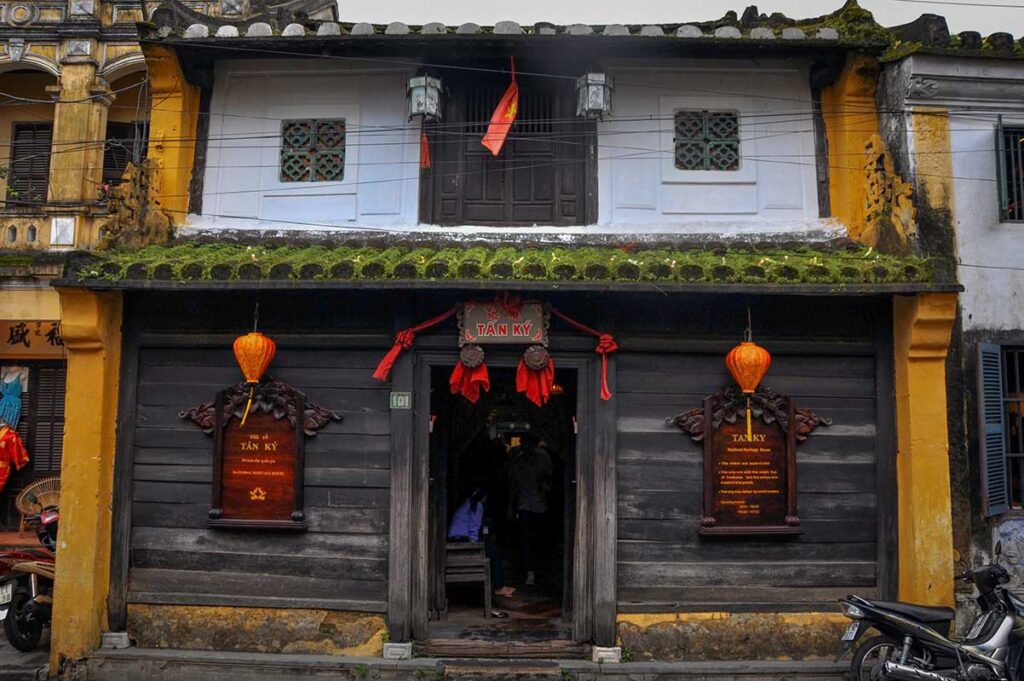What is Tan Ky Old House?
Tan Ky Old House is located at 101 Nguyen Thai Hoc Street, right in the center of Hoi An Ancient Town. Built in 1741, it has been home to seven generations of the Le family, who were once prominent local merchants.
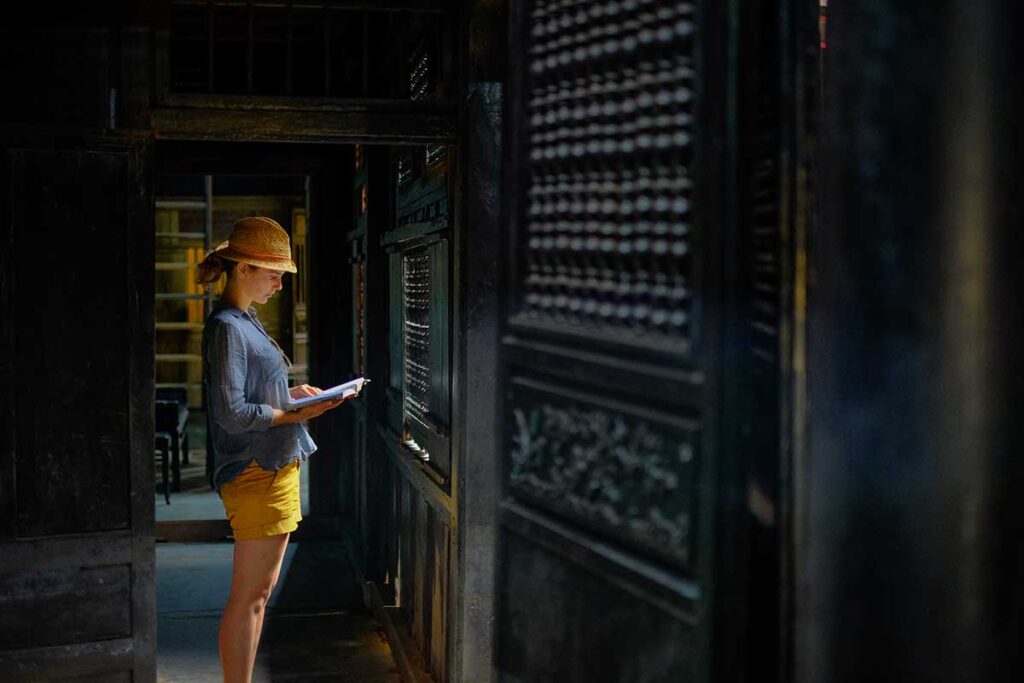
During Hoi An’s trading peak in the 18th and 19th centuries, the house served as both a family residence and a place of business and trade, with goods transported through the rear entrance that once opened to the Hoai River. The name “Tan Ky” was given by the second generation, meaning “Progressive Era”—a reflection of their hopes for prosperity.
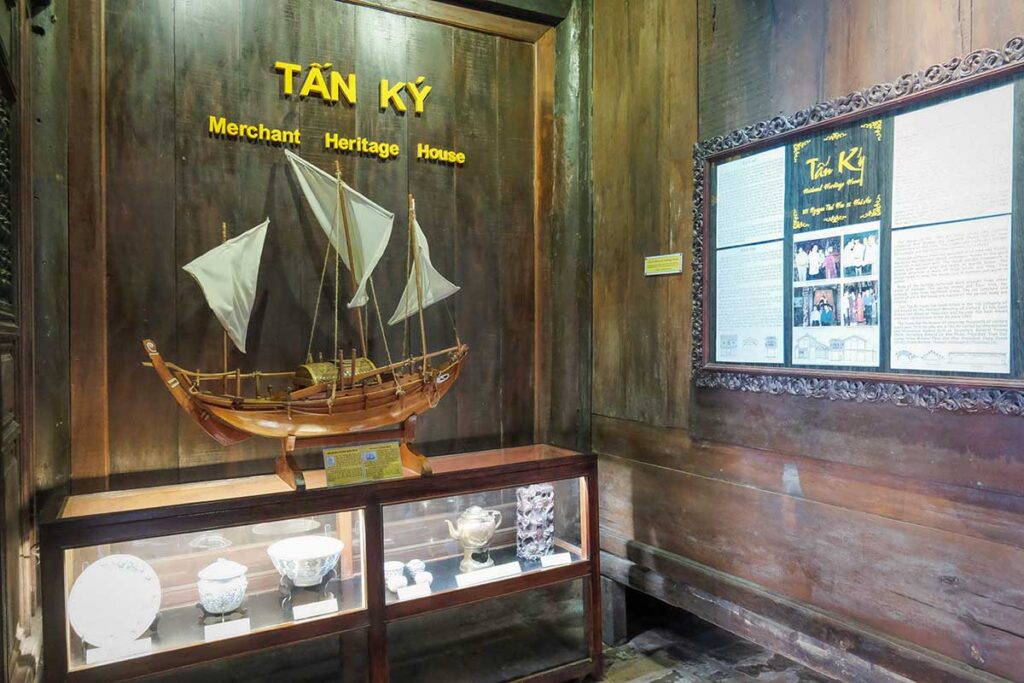
Today, the house is still privately owned and partially lived in. Visitors can explore the ground floor and central areas, while the upper floor remains in use by the family. Access is included as one of the five entries on the Hoi An Ancient Town ticket.
History of Tan Ky Old House
Tan Ky Old House played an important role during Hoi An’s golden age as an international trading port. With its front entrance on Nguyen Thai Hoc Street and rear access once opening directly to the Hoai River, the house was ideally positioned for merchants to conduct business—receiving goods from boats and selling them in the town center.
The name “Tan Ky,” meaning “Progressive Era,” was given by the second generation of the family as a symbol of growth and prosperity. Since its construction in 1741, the house has remained in the same family for seven generations, a rarity even in Hoi An.
In 1985, it was officially recognized by Vietnam’s Ministry of Culture as a cultural heritage site. Despite numerous floods—most notably in 1964 and again in 1999—the structure has remained intact. Inside the house, you can still see flood markers on the walls, quietly recording the challenges it has endured over the centuries.
Architecture & Design of the house
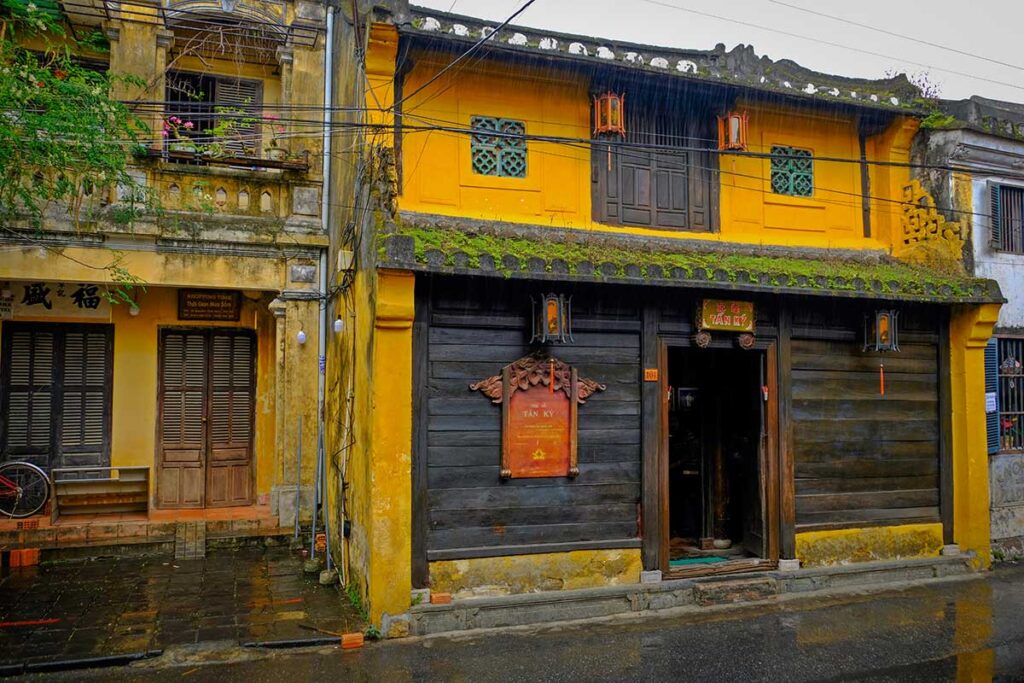
Tan Ky Old House is built in the traditional tube-style layout typical of Hoi An—long and narrow, with rooms arranged one behind the other. There are no exterior windows, but a central skylight (atrium) allows natural light and air to flow through the house, keeping the space well-ventilated.
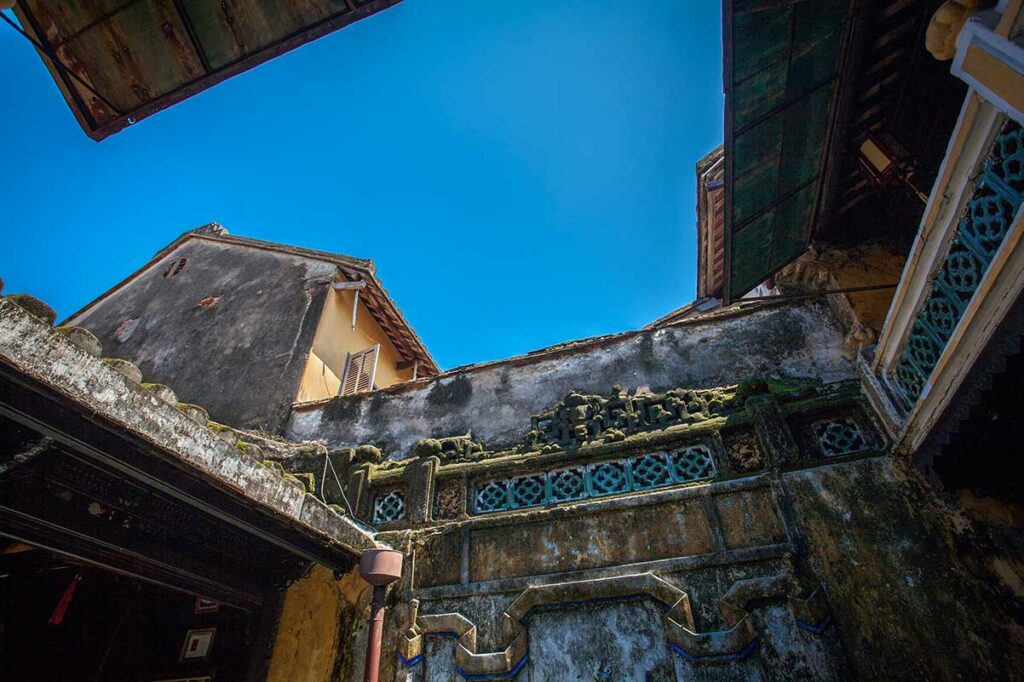
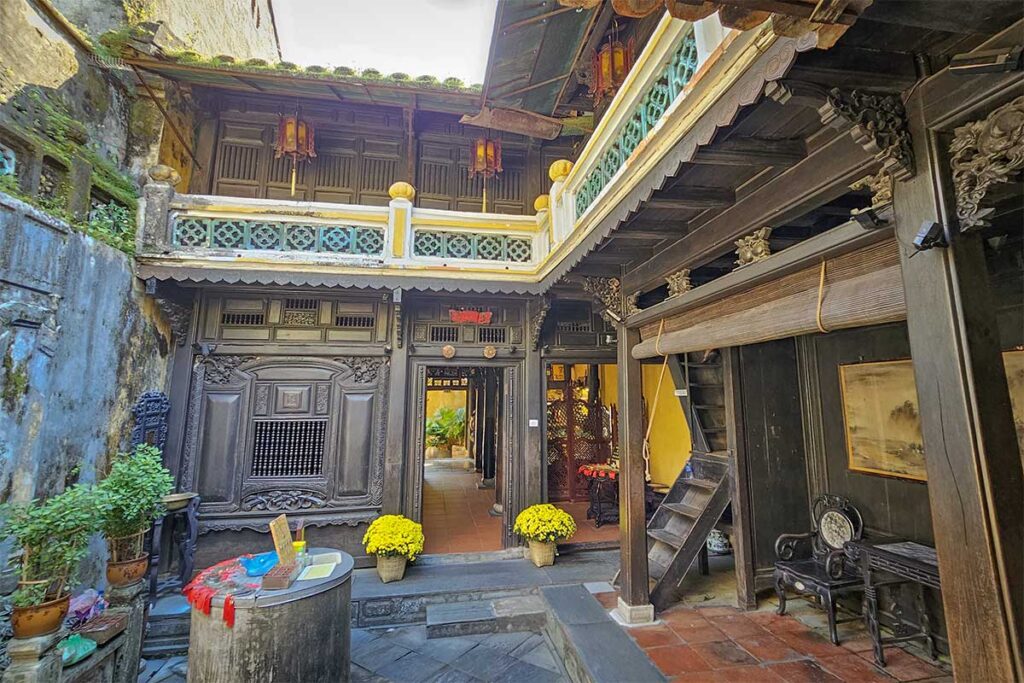
The architectural style blends Vietnamese, Chinese, and Japanese influences. Symbolic carvings, elegant wooden beams, and curved rooflines reflect this multicultural heritage. The house was constructed using durable materials: wooden pillars, Thanh Hoa stone for the foundations, and Bat Trang ceramic tiles for the floors—chosen for their ability to stay cool in summer and warm in winter.
Remarkably, the entire structure was built without a single nail, using traditional joinery techniques. The house was designed and crafted by skilled builders from Kim Bong Carpentry Village, known for their mastery in woodworking and structural precision.
What to see inside
Tan Ky Old House isn’t a typical museum—it’s a living home filled with history, where original antiques and family heirlooms are still on display. The visit offers a look into traditional architecture, trade-era life, and the personal legacy of one of Hoi An’s long-standing families.
1. Antique highlights
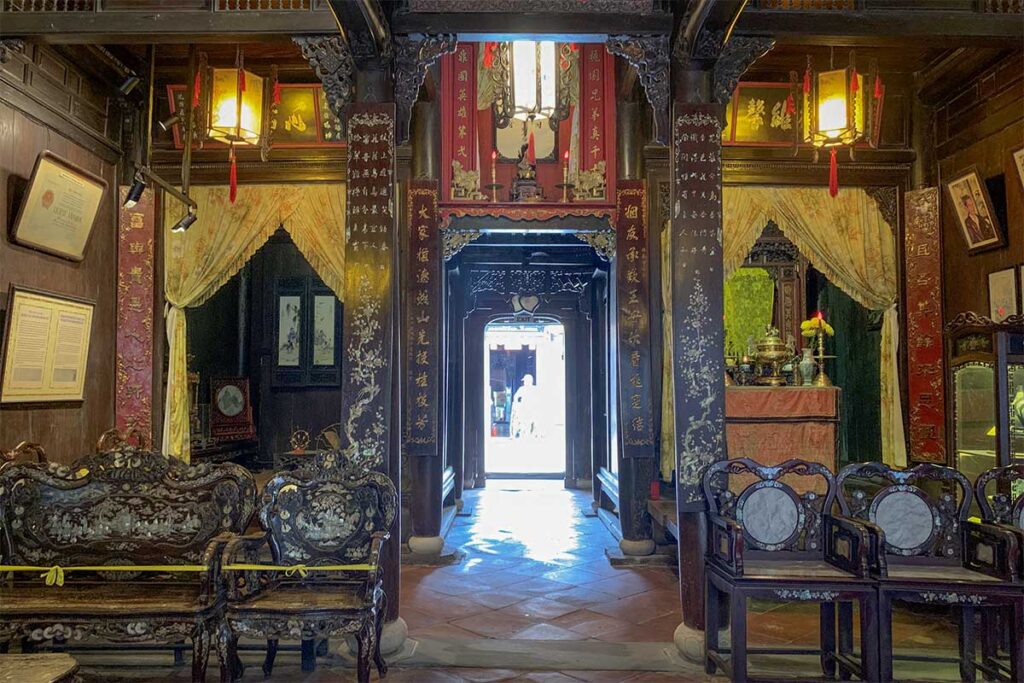
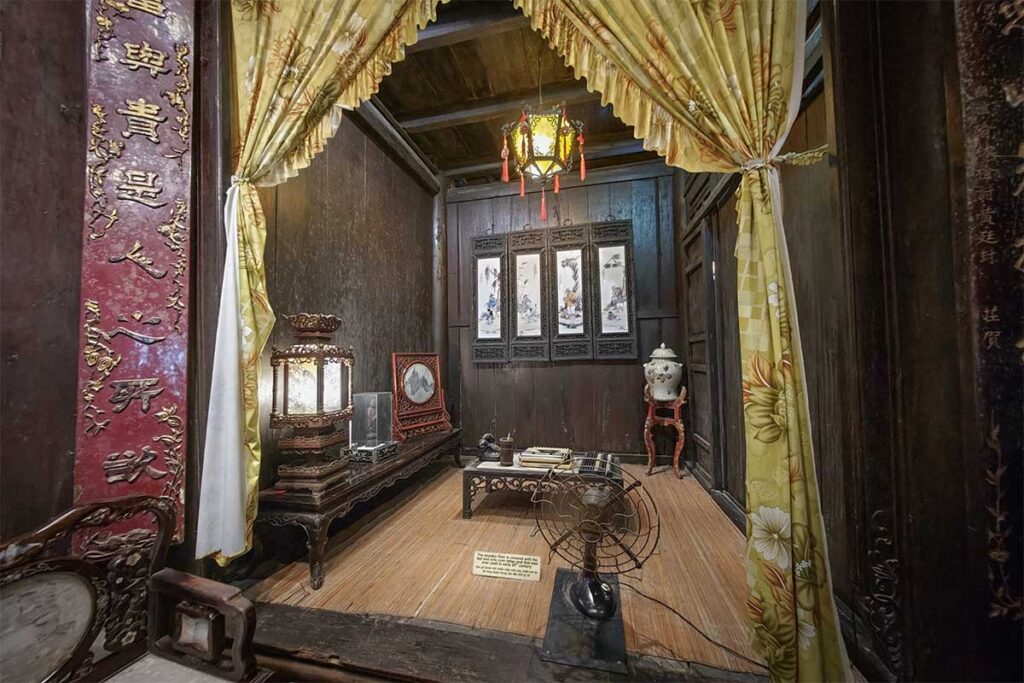
One of the most talked-about items is the Confucius Cup, a unique ceramic cup that overflows when filled past a certain point—offering a lesson in balance and moderation. Another standout is the “Bach Dieu” lacquered board, written in 100 elegant strokes, each shaped like a bird in flight—regarded as a rare artistic treasure.
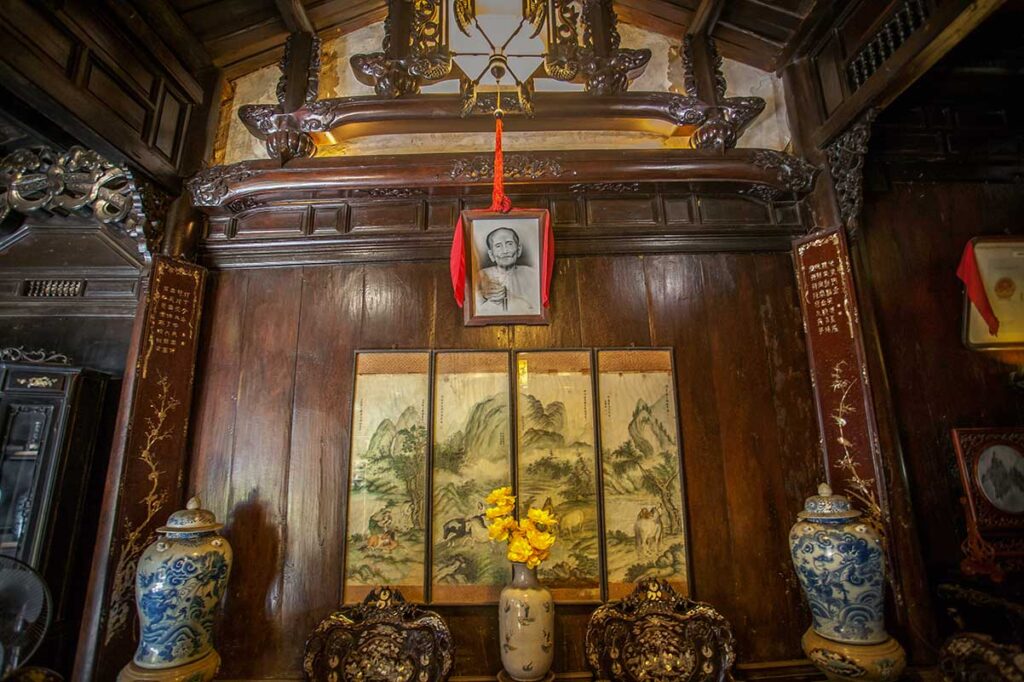
You’ll also see antique pieces like the Ty Ba vase, Chu Dau pottery, intricately carved wooden beds, an ancestral altar, and ornate vase bases. Many of these items date back to the 18th and 19th centuries, preserved with care despite regular flooding.
2. Living museum feel
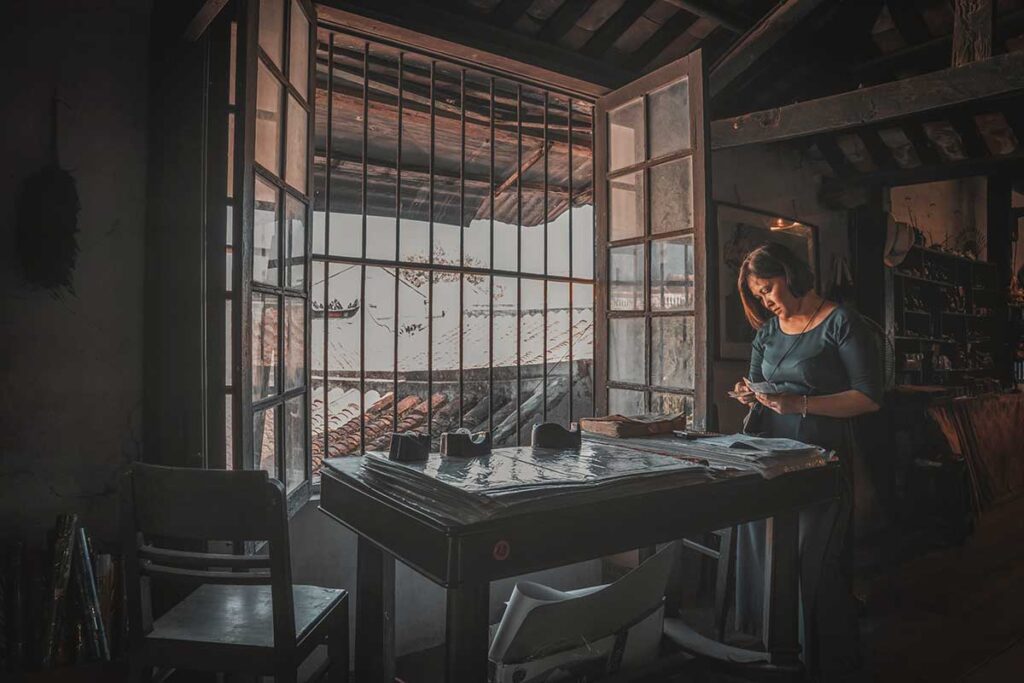
Part of what makes Tan Ky special is that it remains partially inhabited by descendants of the original family. As you walk through the ground floor, you’re stepping into spaces still filled with authentic décor, antique furniture, and personal family items.
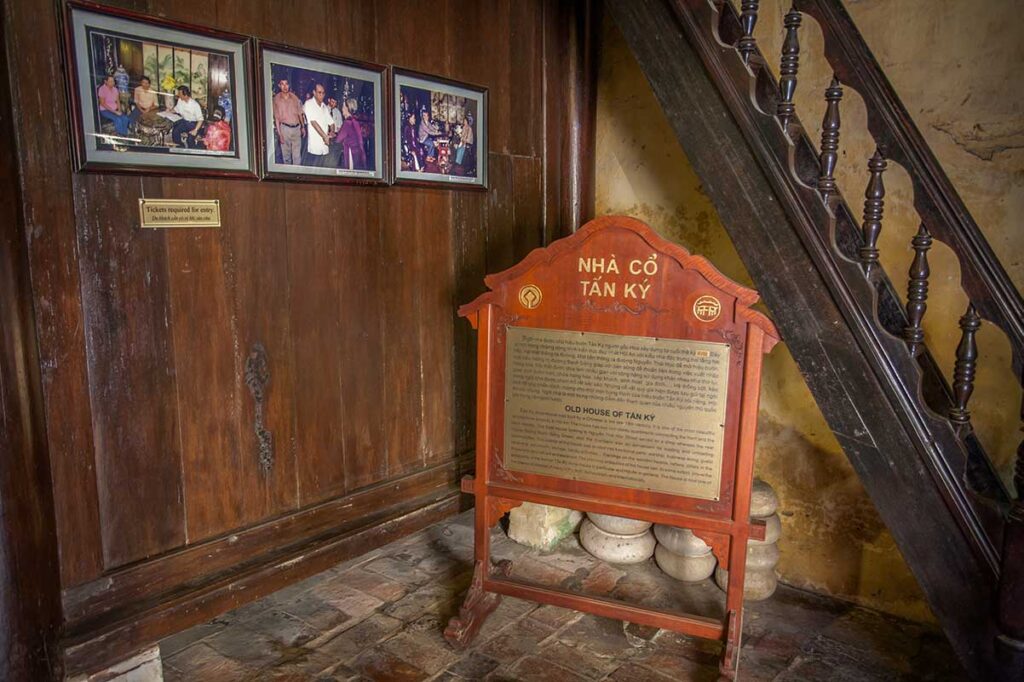
There are corner displays where visitors can browse small souvenirs, see old coins, and view badges and cards left by previous guests. These personal touches give the house a lived-in, layered feeling that sets it apart from more curated museum spaces.
3. Cultural notes
Throughout the visit, on-site guides are often available to explain the symbolism, family stories, and design philosophy behind the house. In some cases, guides are included for larger groups, while smaller groups may be offered a short explanation on arrival.
Topics often covered include Hoi An’s trading history, the meaning behind the family’s name and mottoes, and traditional values tied to the home’s structure and artifacts. Occasionally, calligraphy samples or historic documents may also be presented.
Visiting information
Location
Tan Ky Old House is located at 101 Nguyen Thai Hoc Street, just a short walk from the Japanese Covered Bridge in the heart of Hoi An Ancient Town.
Getting there
You can only walk or cycle to the house, as motorbikes and cars are not allowed inside the Ancient Town. If you’re staying nearby, it’s an easy walk along the main streets of the old town.
Opening hours
The house is open to visitors daily from 8:00 AM to 5:00 PM.
Entry fee
Entry is included in the Hoi An Ancient Town ticket, which costs 120,000 VND and gives you five entries to selected heritage sites. Tan Ky uses one of those entries.
Tips
- Visit in the morning or late afternoon to avoid the hottest part of the day—there’s no air-conditioning inside.
- Dress modestly, especially if you plan to visit temples or assembly halls afterward.
- There’s a small souvenir area at the back with old coins, trinkets, and postcards—it’s low-pressure and optional.
- Take a moment to look at the flood markers on the interior walls to understand what the house has survived.
Is it worth visiting?
Tan Ky Old House is one of the best-preserved and most complete historic homes in Hoi An. It offers a clear window into the life of a prosperous merchant family, with original architecture, antiques, and thoughtful details still in place.
It’s especially worthwhile if you’re interested in traditional architecture, trade-era history, or want to see what a real heritage house feels like. The visit is short and easy to fit in, making it a solid choice for one of your five Ancient Town ticket entries.
Ancient Town Ticket explained & tips
To visit Tan Ky Old House, you’ll need the Hoi An Ancient Town ticket, which costs 120,000 VND and gives you access to five sites of your choice. There are over 20 included attractions, so you’ll want to choose wisely based on your interests.
The sites fall into a few categories:
- Old Houses: Like Tan Ky, Phung Hung, and Duc An—former merchant homes with original interiors and antiques.
- Temples: Historic religious sites such as Quan Cong Temple and Ong Pagoda, reflecting the town’s spiritual roots.
- Chinese Assembly Halls: Grand meeting houses like the Phuc Kien and Cantonese Assembly Halls, known for their altars and ornate courtyards.
- Museums: Focused on different aspects of Hoi An’s history and culture, including the Museum of Trade Ceramics, Museum of Folk Culture, and Museum of Sa Huynh Culture.
To get the most out of your ticket, it’s best to mix a few types of places—perhaps one old house, one temple, one assembly hall, and two museums—to get a well-rounded picture of the town’s history.
Among the old houses, Tan Ky is arguably the most complete and visitor-friendly, making it a top pick if you’re only planning to visit one.
